Show all entries of this category
371
Vote
Hadj Nemat, Ostad Elahi’s father, passed away on 28 February 1920. The following two documents honour the memory of this great spiritual figure who also happened to be an inspired mystical poet. The first is Renaud Garcia-Fons and Claire Antonini’s musical tribute based on Hadj Nemat’s “Monajat”: it was recorded a the Maison de Radio France on February 25th. The second document, a poem entitled “Unfaithfulness of the World”, is one of the masterpieces of Hadj Nemat’s The Book of the Kings of Truths. The English translation we republish here was done by Martin Hoffman, on the basis of Leili Anvar’s French version.
Read more
250
Vote
I noticed recently, as I was listening to one of these debates we all too often get to see on TV or hear on the radio, how little Truth is expressed in these exchanges. Perfectly malleable minds, weaving through this verbal universe; ideas and concepts going back and forth, one after the other, but carrying no weight, relieved of all reality, emptied of all knowledge.
Why is that? Because knowing, truly understanding, involves more than this mere game of ideas and theoretical scaffolding, no matter how ingenious and brilliant. Knowing involves a personal experience of reality, it involves the challenge of confronting our convictions and beliefs to reality.
Read more
340
Vote
What better way to honour Ostad Elahi’s memory, than through the account of those who have met him in person? The following testimonial, among others, was made available by ostadelahi.com. The Editorial Board would like to thank ostadelahi.com for sharing it with us.
I first met Ostad Elahi on an autumn day in 1963 in Tehran (I am French and at the time had been living in Tehran for 5 years). It was in the spring of 1964 that I really became his student. At first, the gatherings did not take place on fixed dates or at regular intervals. Gradually, a group formed that would convene once, sometimes twice a week; occasionally larger gatherings were also held in which many people participated. These larger gatherings would usually form to commemorate religious celebrations. In addition to these gatherings, some people used to visit him on certain evenings. I prefer to mostly talk about those informal gatherings, for it was during those sessions that Ostad Elahi would convey the majority of his teachings.
Read more
321
Vote
If one quality had to be singled out as being primarily required to live an ethical life, it would without question be courage. This courage Aristotle considered to be “the first of human qualities because it is the quality which guarantees the others.”
Indeed, so many good intentions get crushed by the fear to expose oneself or to break the bonds that tie us to others! So many ambitious programs are carefully reflected upon and put forward only to wane and erode away in the face of weariness! Because courage is essential every step of the way: to make the inaugural move that marks the beginning, to dominate the fear of exposing oneself, to spontaneously assert one’s freedom while remaining loyal to the initial impetus, and finally to survive the long solitary struggle against despondency.
Read more
381
Vote
“The cause of everything that happens to you is in you; you should therefore look within yourself to find the cause.”
My reading of this maxim by Ostad Elahi triggered a number of thoughts that I would like to share by way of this article. A hearty thanks to e-ostadelahi.com for the opportunity to share with their readers.
We tend to spend a lot of time blaming “the world” for our misfortunes. On the other hand, we consider anything good to be the fruit of our own doing. But as always, giving it a little thought can make us realise that reality is a lot more complex.
Read more
544
Vote
Hadj Nemat, Ostad Elahi’s father, passed away on 28 February 1920. The 93rd anniversary of his departure is the occasion to look back at the life and works of this great spiritual figure. The following article, originally published by the Encyclopædia Iranica provides a brief yet detailed and well documented overview of who Hadj Nemat was and what he accomplished. The Encyclopædia Iranica has kindly authorised us to reproduce this article, the original version of which is available here.
For those who wish to learn more about Hadj Nemat’s life and works, more resources, including historical and biographical information, as well as photographs and testimonials, are available on the website hadjnemat.com.
Read more
364
Vote
Why be humble?
If humility consists in resisting the pressure of pride—whose power we can sense—it most certainly requires an effort. As all efforts, it needs to be justified, for after all, if the illusions of an oversized ego are part of my fundamental nature, and as long as they remain within the limits of reason, why try and rid myself of them—assuming this is even possible?
There are at least two reasons that would provide motivation for such an effort:
The first reason is ethical and refers to what has been called “love of truth”. While it is in my nature to be blind to the true place I hold in the world, it is also in my nature, once I have become conscious of an illusion, to try and free myself from it. No one can content themselves—unless they are spiritually dead—with living knowingly in error without trying to come clear. We are naturally inclined to seek truth, whatever it may be, even if it is unpleasant for our ego. Given that pride is founded on lies and illusions, it is our ethical duty to strive to become more humble so as to free ourselves from these lies and to come closer to the truth of what we really are.
Read more
398
Vote
As with all omnipresent and invasive character traits, consubstantial pride is difficult to localise. But a number of characteristics make it possible to pinpoint it. These characteristics are more or less obvious depending on the individual, but no one is entirely devoid of them. Delving within is all it takes to uncover strong tendencies that express themselves more or less openly depending on the situations, and take different forms, at times obscure, at times subtle or twisted.
Read more
756
Vote
We all know Pinocchio. This living wooden puppet whose nose grew bigger when he lied and who eventually turned into a real boy. The story of his adventures have arguably become part of our modern mythology. But with numerous versions and adaptations (including the famous 1940 Disney movie), many of us remain unfamiliar with the original story written by Carlo Collodi in the 19th century. Yet it is this original story that can be viewed as providing a brisk and original explanation of the meaning of life. It is therefore worth mentioning the brilliant new translation of the story by Geoffrey Brock published by the New York Review of Books in 2008 (a new edition for children illustrated by Fulvio Testa is scheduled to come out in October 2012).
In an article originally published on his blog (brendanmcphillips.com), Brendan McPhillips explains why, in his view, this puppet story constitutes a clear and accurate metaphor for the meaning of life itself. He has kindly authorised us to share his article here.
Read more
711
Vote
Humility is the most accomplished form of self-knowledge. It presupposes that you have a clear and lucid perception of what you really are and of the place you hold in the world. It presupposes also that you look at yourself with neutrality and even distance: humility also means being able to look at yourself with humour.
As explained in my previous post, humility can be defined as the articulation point between two modes of the self (psychological and metaphysical): it means acknowledging my metaphysical condition (the “I am nothing”) even when I am in the midst of social interactions, surrounded by others, just like others. It means being aware of my insignificance even when I go about my business, defending my rights and making sure I command respect if necessary, while constantly carrying within me that “double thought” Pascal alludes to.
Read more
Go top
« Older Entries - Newer Entries »
|

 News
News Podcast
Podcast

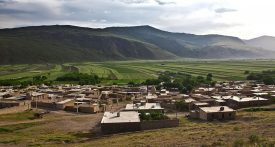
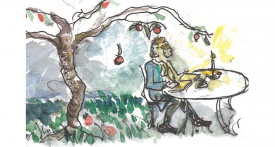
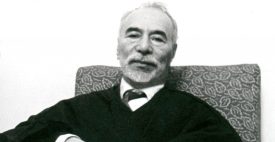

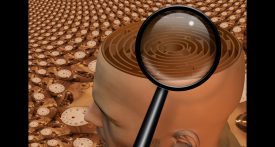
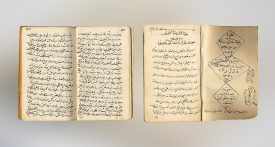
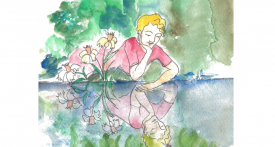
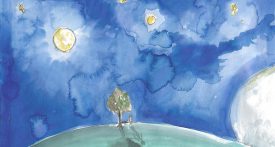
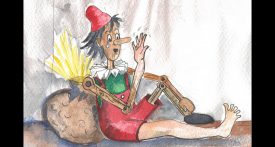
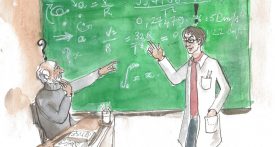


Recent Comments